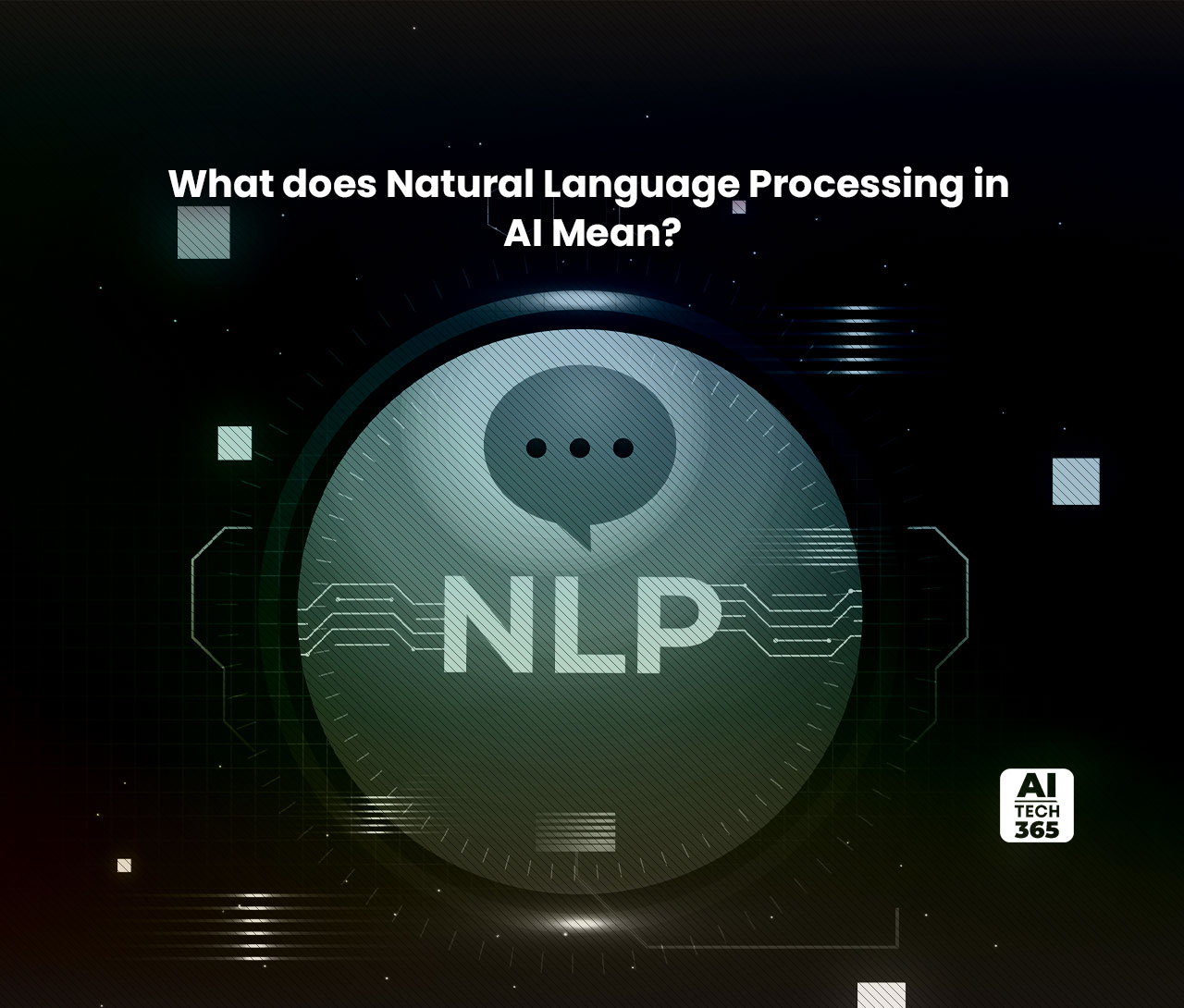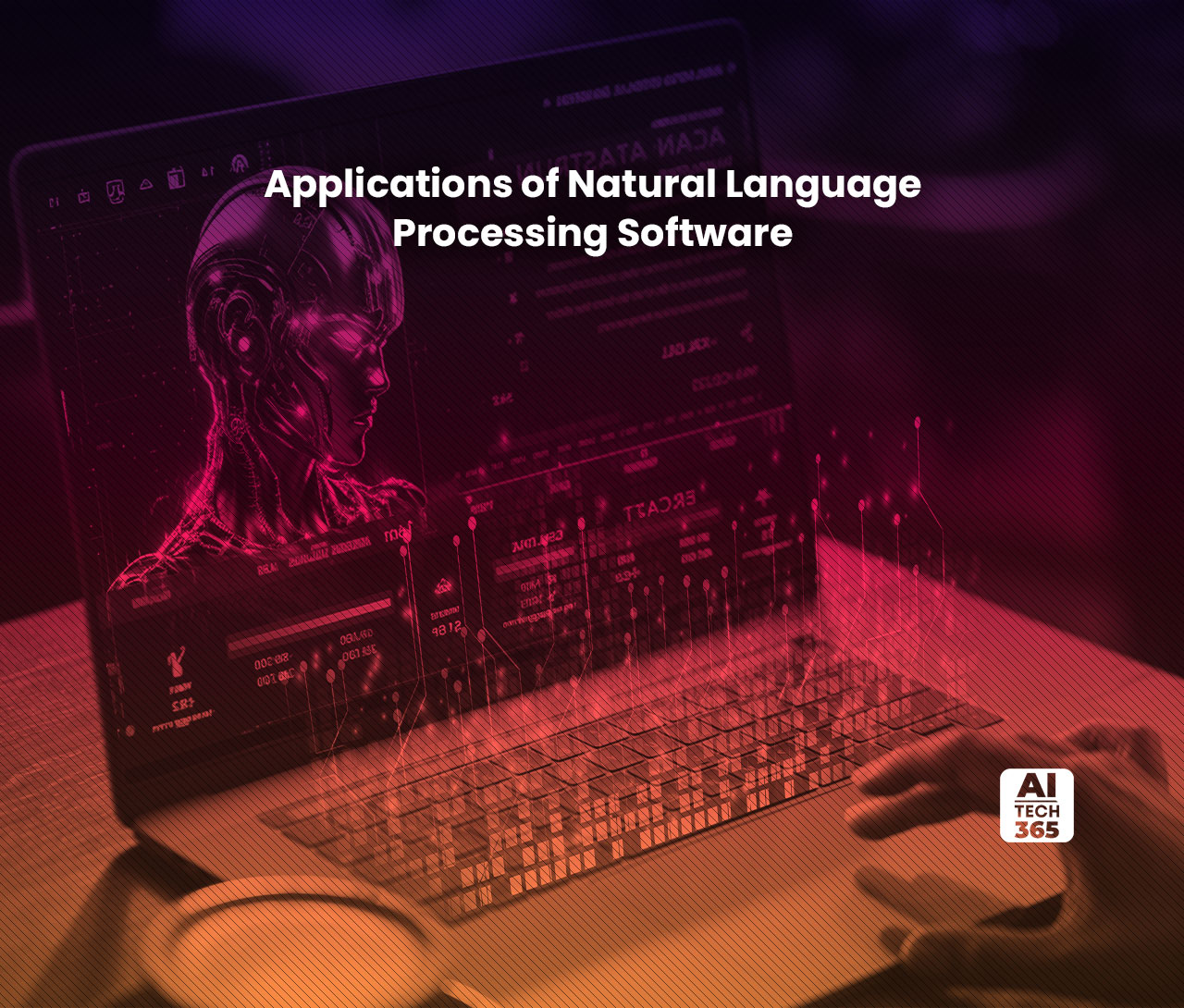Artificial Intelligence (AI) has become a pivotal field in computer science, focused on developing smart systems capable of performing tasks that typically require human intelligence. These tasks include problem-solving, decision-making, and language processing. Natural Language Processing (NLP) is a subfield of AI that specifically deals with the interaction between computers and human language. NLP aims to enable computers to understand, interpret, manipulate, and generate human language in a meaningful and effective way. Without any further delay, let’s understand everything about how AI in natural language processing software has transformed our everyday lives.
What does Natural Language Processing in AI Mean?
Natural Language Processing (NLP) is a subfield of computer science, particularly within artificial intelligence (AI), focused on endowing computers with the capacity to comprehend textual content and spoken language, mirroring the cognitive abilities of human beings.
Modern AI in natural language processing technology increasingly relies on machine learning, particularly deep learning, to effectively process and understand natural language text and speech. This has led to significant advancements in the extraction and manipulation of textual and spoken language, enabling the creation of intelligent chatbots, sentiment analysis tools, and language translation services.
According to Statista, the natural language processing market is projected to achieve a 15.10% annual growth rate (CAGR) over 2023-2030, reaching a market volume of $63.37 billion by 2030.
Decoding the Significance of NLP
The significance of AI in natural language processing software is abundant as it assists every aspect of our everyday life. The application of natural language processing in financial decision-making can revolutionize the management of extensive analysis, covering regression, vector machines, and more. By integrating large volumes of information, NLP facilitates pattern prediction and effective data extrapolation, offering diverse opportunities for analysis in the broader market. Additionally, there is a growing urgency to automate the news analysis process based on NLP techniques, providing investment managers and corporations with more relevant information for AI-based predictive models.
In essence, the intersection of AI in natural language processing software drives the development of technologies that aim to bridge the gap between human language and machine understanding, propelling us into a future where computers can intuitively comprehend and interpret language, thereby transforming various aspects of society and industry.
Applications of Natural Language Processing Software
Below are some major applications of AI in natural language processing software:
- Spam Detection: While not immediately associated with NLP, spam detection leverages NLP’s text classification capabilities to scrutinize emails for linguistic patterns indicative of spam or phishing. These patterns encompass the overuse of financial terms, distinct grammar issues, menacing language, undue urgency, misspelled company names, and more. Spam detection stands as one of the few NLP challenges deemed ‘mostly solved’, although individual email experiences may vary.
- Machine Translation: Google Translate exemplifies the widespread application of AI in natural language processing technology. Genuine proficiency in machine translation goes beyond mere word replacement, necessitating an accurate capture of the meaning and tone in the input language, translated into text with equivalent meaning and desired impact in the output language. Noteworthy progress in accuracy is evident, as seen in the improvement from classic examples like translating “The spirit is willing but the flesh is weak” resulting in “The vodka is good but the meat is rotten” to today’s rendition as “The spirit desires, but the flesh is weak”.
- Virtual Agents and Chatbots: Virtual agents such as Apple’s Siri and Amazon’s Alexa employ speech recognition for pattern recognition in voice commands, while chatbots replicate this functionality for typed text entries. These applications learn to discern contextual cues in human requests, enhancing responses or options over time. The next frontier involves question answering, enabling these agents to provide relevant and helpful answers in their own words.
- Social Media Sentiment Analysis: AI in natural language processing software has evolved into a pivotal business tool for extracting hidden insights from social media channels. Sentiment analysis scrutinizes language in social media content, including posts, responses, and reviews, to discern attitudes and emotions related to products, promotions, and events. This information proves invaluable for shaping product designs, advertising campaigns, and strategic decisions.
- Text Summarization: Text summarization utilizes NLP techniques to distill extensive volumes of digital text into concise summaries for indexes, research databases, or time-constrained readers. Leading text summarization applications employ semantic reasoning and natural language generation (NLG) to imbue summaries with meaningful context and conclusions.
These are just a few examples of how NLP software is used in various domains and applications. NLP continues to evolve rapidly, and its applications are expanding every day, making our lives easier and more efficient.
Winding Up
AI in natural language processing software assists companies in extracting valuable insights from unstructured text data, such as emails, online reviews, and social media posts.
Some of the popular online NLP tools include IBM Watson, Aylien, and Monkeylearn. There are other open-source and software-as-a-service (SaaS) options that make NLP accessible for businesses. Open-source libraries offer flexibility and customization, but they come with the trade-off of not being as cost-effective.


